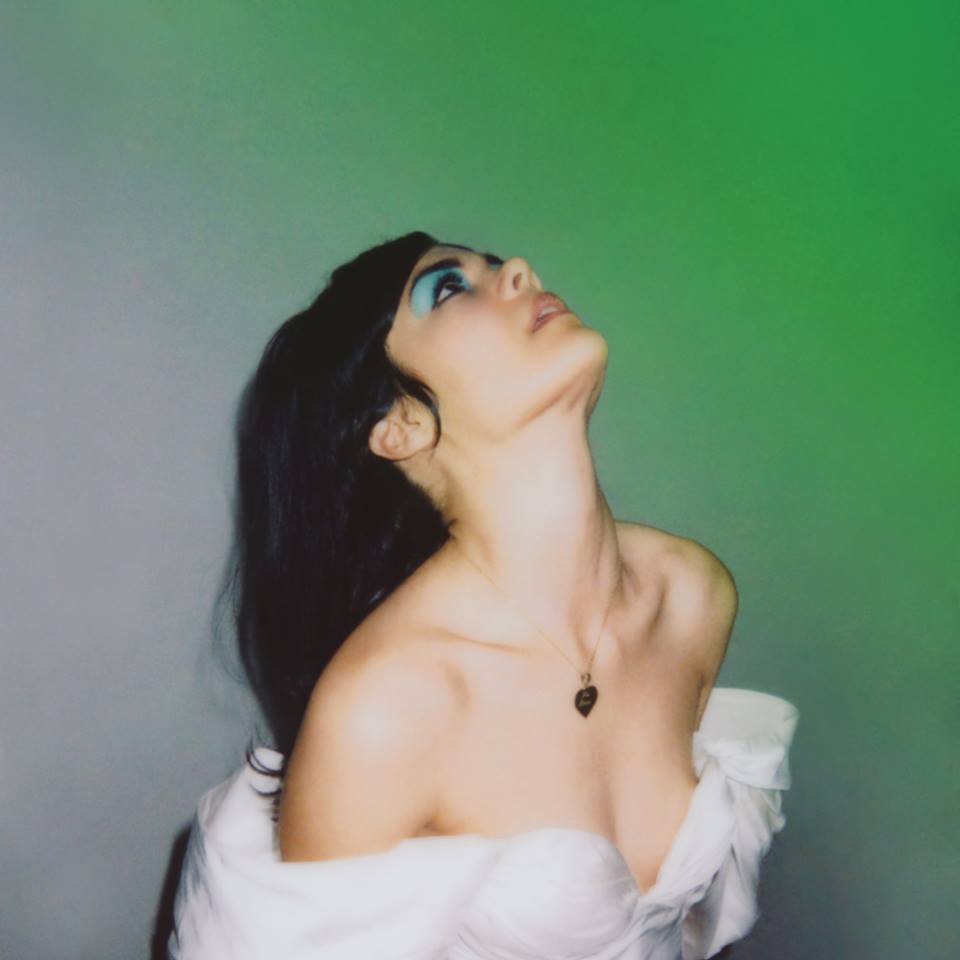It’s been 10 years since Natasha Khan, aka Bat For Lashes released her first album Fur and Gold (2006) and introduced her whimisical storytelling on the world. She honed her craft on Two Suns (2009), she dealt with dicotomies and alter egos, in the shape of ‘Pearl’ whose personality is strong and full of herself, contrasting to Natasha’s easygoing and sweet ways. With The Haunted Man (2012), Khan faced a writer’s block and overcame it by inspiring on strong women, including the women in her family and also those important female characters from movies and TV series, before immersing herself firstly in her ‘Sexwitch’ side project and then her new long player – The Bride.
The inspiration for The Bride came whilst drawing the scene of a Bride on a top of a mountain with a giant veil coming down and a car on flames on a side of a paper. She knew the Bride was mourning the death of the groom in the accident, and since then, it was the main inspiration for a short movie and the album as a whole. Khan worked with Neil Krug to develop the visual of the album and went to Woodstock to produce the album in six weeks.
The story of the bride starts with the invitation on the opening track “I Do”, a simple melody with haunting background with the bride fantasizing with the wedding day, then a premonitory dream in follow on “Joe’ Dream” happens just afterwards- the groom has strange dreams with angels, dead bodies and the feeling of death. The second single “In God’s House” narrates the anxiety of the bride on the church waiting for the groom with the heartbreaking confirmation of his death confirmed at the songs conclusion – from this moment the bride of our (well, Natasha’s) story starts her journey by herself: she decided to hit the road for her Honeymoon alone to grieve his death and find herself, and her thoughts are translated on the songs “Never Forgive the Angels”, and “Sunday Love”, and maybe a connection to the other side on “Close Encounters”. This first part of the album boils down to the climax of the album with “Widow’s Peak”, a haunting monologue in which the Bride wonders about the bride/widow fate, maybe joining the death to find her lover; however, after this point- The Bride starts to accept the lover’s death by visiting ‘their’ place in “Land’s End”, also cropping up in “If I Knew” and “I Will Love Again”, the latter where she finally heads home and hopes to finally be able to love someone. There are also the tracks “In Your Bed” and “Clouds” in which the Bride reminisce about the lover using nature analogies such as the wind and the clouds.
To shape The Bride, Bat For Lashes’ sound has become less electronic and more delicate, using more organic instruments, such as heavy use of bass guitars, guitars and piano. The first half of the album, apart from “I Do” are more complex, eletronic and with a great use of programming to give a dark atmosphere. From “Widow’s Peak” onwards, the songs become more acoustic with organic elements such as piano and guitars coming to the fore, with more focus on the vocals. Apart from the instrumental arrangements, what also draws attention is the interpretation: Natasha sings The Bride’s songs – all the conflicting feelings; anger, despair, love, confusion are present in her voice which effectively transmits her (the Bride’s) desperation. Because of the esthetics, it is hard to find songs which suits the radio, with “Sunday Love” the most accessible.
According to Khan, The Bride’s journey reinforces how people are alone in the world, and this journey is only ours, although we normally share our trip with family, friends and lovers. The Bride finds herself alone, and learns how to deal with this revelation in a harsh way. It is a beautiful and haunting story, and the best yet Natasha Khan has told in Bat For Lashes.














No Comment